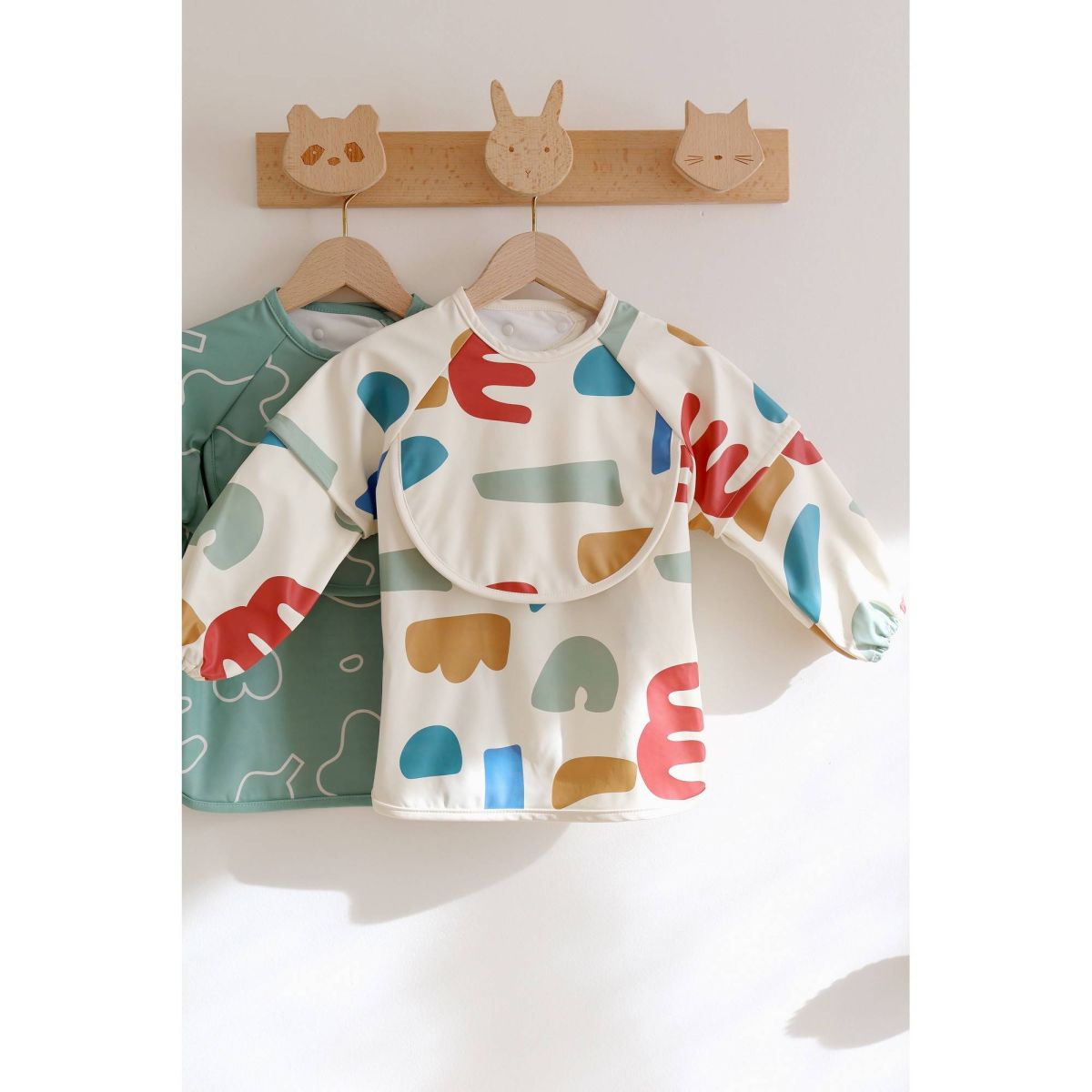Winter brings with it all the cozy things - knitted jumpers, snuggly naps and the scent of soup simmering on the stove. But it also brings the less-glamorous side of parenting: runny noses, cold feet and a lot more time indoors.
If you're breastfeeding, starting solids (or both), you might be wondering whether the season makes a difference. The short answer? Not really — but there are a few things worth knowing to help support your little one (and yourself) through the colder months.
Breastfeeding in Winter
While breastmilk remains perfectly tailored to your baby’s needs all year round, there are a few winter-specific considerations that can make things a little easier - and a little cosier.
Keeping warm while feeding: If you’ve ever tried breastfeeding while freezing at a park bench — you’ll know. Choose layers that make feeds easy and warm, like zip-up jumpers, button-down knits, or a large scarf you can wrap around both of you. For baby, socks that actually stay on, a beanie, and a warm blanket can make feeds more comfortable, especially if you're out and about. And don’t forget a cosy dressing gown for middle of the night wakes.
The importance of Vitamin D: With less sunshine and more skin covered during winter, both you and your baby may not be getting enough vitamin D — which is important for bone health and immune function. The vitamin D content of breastmilk is highly dependent on a mother’s vitamin D level (Kazemain et al., 2022, p. 569), so if you aren’t getting enough vitamin D, chances are your baby won’t be either. Research has shown that maternal supplementation with vitamin D can influence infant vitamin D levels (Kazemain et al.,2022, p. 583), while experts recommend breastfed infants be supplemented with at least 400IU vitamin D from birth to 12 months to prevent the development of rickets (Munns et al., 2016, p. 395). (Formula-fed babies usually get enough through their milk, depending on intake). If you’re not sure where your baby’s at with vitamin D, that’s worth a quick chat with your GP or health professional.
Your milk adjusts when bub is sick: One of my favourite facts about breastmilk? It literally changes when your baby is unwell — producing extra antibodies and immune-protective factors to help them recover (Riskin et al., 2012, p. 223). So, if your little one comes down with a cold or illness, continuing to breastfeed plays a wonderful role in their healing.
Starting Solids in Winter
If your baby is around the 6-month mark and starting solids during winter, you’ve timed it with a season where immune support is key. Here are a few things to keep in mind.
Incorporate warm, nutrient-dense foods: Winter is a great time to offer warm, soft foods that are both nourishing and comforting — think mashed pumpkin, stewed pear, red lentil soup, or slow-cooked meats which melt apart easily in your fingers. Just make sure anything you serve is warm, not hot — and always test the temperature before offering.
Focus on nutrients that support immunity: Your baby’s immune system is still under construction, so offering foods that support immune health is a helpful step — especially in a season where bugs are everywhere.
Key nutrients to include:
- Iron – supports immune cell function (beef, chicken, tofu, lentils)
- Zinc – helps regulate immune responses (eggs, yoghurt, pumpkin seeds)
- Vitamin A – supports the skin and gut as immune barriers (grass-fed liver, pumpkin, sweet potato)
- Vitamin C – supports iron absorption and boost immune cell activity (kiwi, broccoli, strawberries)
- Vitamin D – necessary for bone and immune system health (best obtained via daily safe sun exposure on large surfaces of skin, such as belly and thighs)

Layer up but keep it practical: Starting solids means mess. In summer, it’s easy — off come the clothes. In winter, not so much. Layer up with easy-to-wash warm clothes layered with long-sleeve waterproof bibs to keep their body covered while still letting them explore.
Don’t forget about hydration: Especially if bub is unwell or you're introducing solids.
- Babies under 6 months don’t need water if they’re exclusively breastfed or formula-fed.
- From 6 months, small sips of water with meals are recommended.
- If bub is sick or has a fever, offer feeds more frequently and water where appropriate.
Winter doesn’t mean a total feeding overhaul - but a few small tweaks can make life a bit easier for both of you. Keep offering variety, support immunity where you can, and focus on warmth, rest, and connection - the real heavy lifters when it comes to health.
And if you’re feeling unsure about whether your baby’s getting what they need right now — I’m here to help. Whether it’s working through feeding worries, starting solids, or supporting your own nutrition during this season, we can do it together.
Book a free 15-minute discovery call here, or check out my consult options and group sessions for calm, evidence-based support that fits real life.
Kelly xx
Nutritionist | www.feedingthebump.com.au | IG: feeding.the.bump
This information is general in nature and not intended for personal health advice. Please consult your healthcare practitioner before making changes to yours or your little one’s health
References:
Kazemain, E., Ansari, S., Davoodi, S.H., Patterson, W.B., Shakerinava, P., Wagner, C.L., Amouzegar, A. (2022). The Effect of Maternal Vitamin D Supplementation on Vitamin D Status of Exclusively Breastfeeding Mothers and Their Nursing Infants: A Systematic Review and Meta-Analysis of Randomized Clinical Trials. Advances in Nutrition, 13(2). https://doi.org/10.1093/advances/nmab126
Munns, C.F., Shaw, N., Kiely, M., Specker, B.L., Thacher, T.D., Ozono, K., Michigami, T., Tiosano, D., Mughal, M.Z., Mäkitie, O., Ramos-Abad, L., Ward, L., DiMeglio, L.A., Atapattu, N., Cassinelli, H., Braegger, C., Pettifor, J.M., Seth, A., Idris, H.W., Bhatia, V., Fu, J., Goldberg, G., Sävendahl, L., Khadgawat, R., Pludowski, P., Maddock, J., Hyppönen, E., Oduwole, A., Frew, E., Aguiar, M., Tulchinsky, T., Butler, G., Högler, W. (2016). Global Consensus Recommendations on Prevention and Management of Nutritional Rickets. Journal of Clinical Endocrinology and Metabolism, 101(2):394-415. https://doi.org/10.1210/jc.2015-2175
Riskin, A., Almog, M., Peri, R. Halasz, K., Srugo, I., Kessel, A. (2012). Changes in immunomodulatory constituents of human milk in response to active infection in the nursing infant. Pediatric Research, 71. https://doi.org/10.1038/pr.2011.34
















Feeding Your Baby in Winter: What Changes (and What Doesn’t)